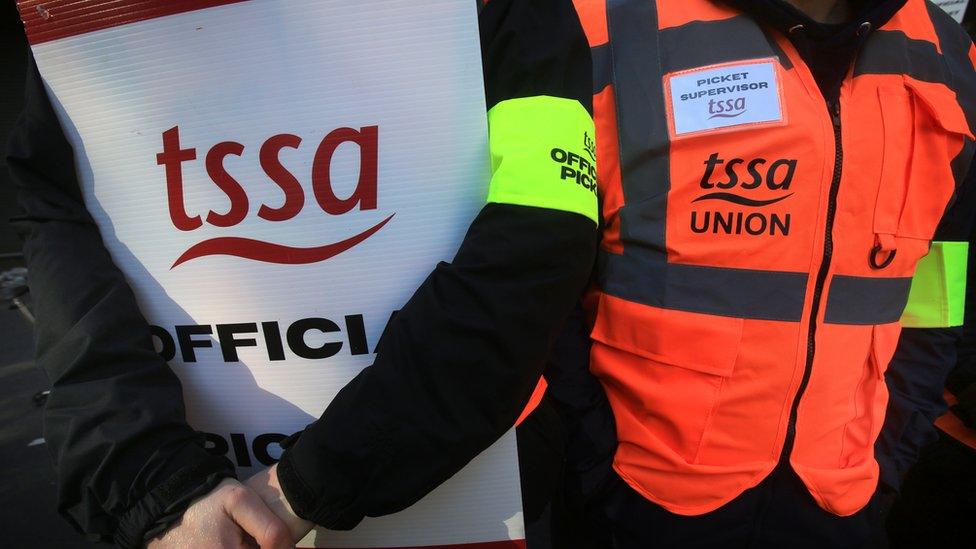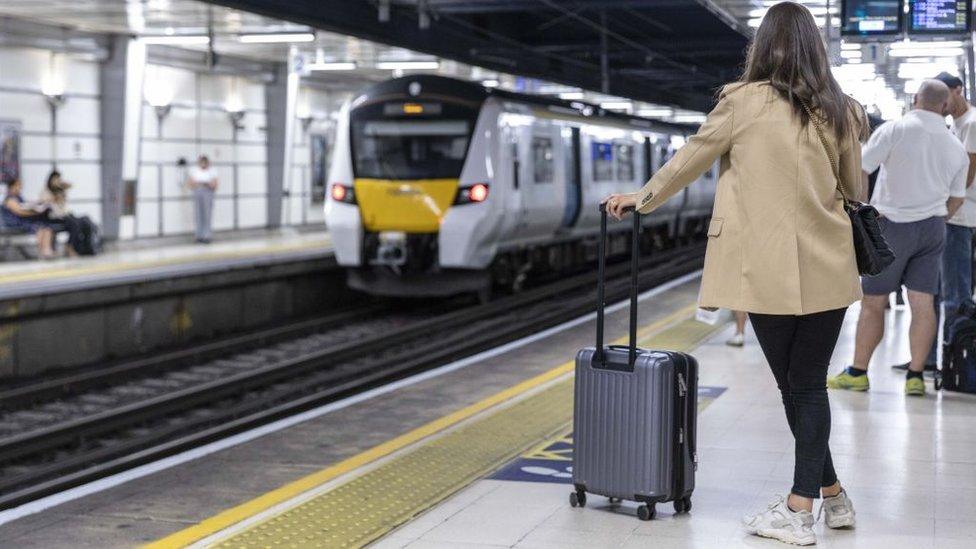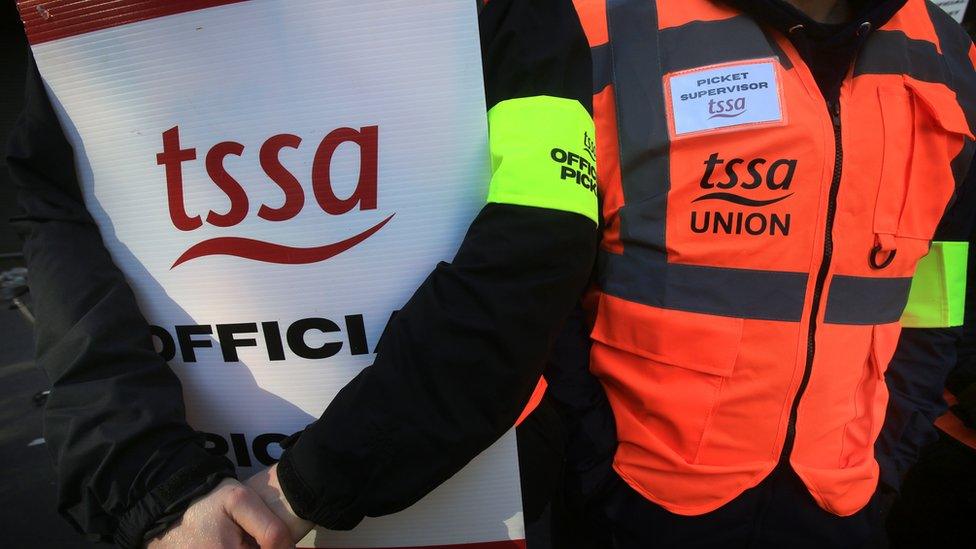TSSA rail union accepts pay offer from train companies
- Published

One of the smaller unions involved in the rail dispute has voted to accept a settlement offer with train companies.
The Transport Salaried Staffs' Association (TSSA) said its 3,000 members had accepted an offer including a two-year 9% pay deal.
The Rail Delivery Group (RDG), which represents rail firms, called the move a "positive breakthrough".
In December, the TSSA had accepted Network Rail's offer to settle its dispute with that company.
The TSSA is smaller than both the RMT and Aslef unions, which are still in dispute with the rail companies over pay, job cuts and changes to terms and conditions.
The TSSA said the two-year pay deal would mean a 5% increase in 2022/2023 or a minimum or £1,750, whichever is the greater, and a further 4% the following year.
It also said it had secured commitments on job security and full consultation over any possible changes to terms and conditions. The deal is in exchange for staff accepting changes to working practices - including a new multi-skilled station role.
The agreement also means there will be no compulsory redundancies among certain grades of staff, including station-based workers and all on-board staff, until the end of 2024.
The TSSA has dropped ballots on further industrial action, although it said it continued to oppose the proposed closures of ticket offices.
There are 14 train companies involved in the agreement, including Avanti West Coast, East Midlands Railway, Govia Thameslink Railway, Greater Anglia, Great Western Railway, Northern Trains Limited, South Western Railway and TransPennine Express.
A spokesperson from the Department for Transport called the outcome "positive news", saying the offer was "fair and reasonable", and that it allowed the "vital reforms" needed to get railways "back on a financially sustainable footing".
A spokesperson for the TSSA said its members could be "rightly proud of their actions" in the dispute.
"The incredible resolve we have seen from our members has resulted in a significantly improved pay deal over two years."
Strike dates
Rail unions have held a series of strikes since last summer in a dispute with Network Rail and the rail companies over pay and conditions.
Earlier this month, the largest rail union - the RMT - rejected the industry's latest offers.
Network Rail and the train companies' group had called the proposals their "best and final", but RMT boss Mick Lynch said they were "dreadful".
Members of the RMT union from 14 train operators are due to strike on 16, 18 and 30 March and 1 April, which marks the start of the Easter school holidays for many.
And RMT members at Network Rail, responsible for tracks and bridges, have said they will walk out on 16 March and then refuse to work overtime.
On Thursday, the RDG called on the RMT to put the offer accepted by the TSSA to its members.
It said the breakthrough with the TSSA came after the RMT executive had rejected an "equivalent offer" last month and refused to put it to members in a vote.
Steve Montgomery, chair of the RDG, said: "We hope that the RMT leadership will take this opportunity to reconsider their rejection of our equivalent offer, call off their unnecessary and disruptive strikes and allow their members a referendum on their own deal."
The train drivers' union Aslef, is also still in dispute with the rail companies, but it has not confirmed any further strike dates.
Related topics
- Published9 May 2024

- Published11 February 2023

- Published11 February 2023

- Published9 February 2023
